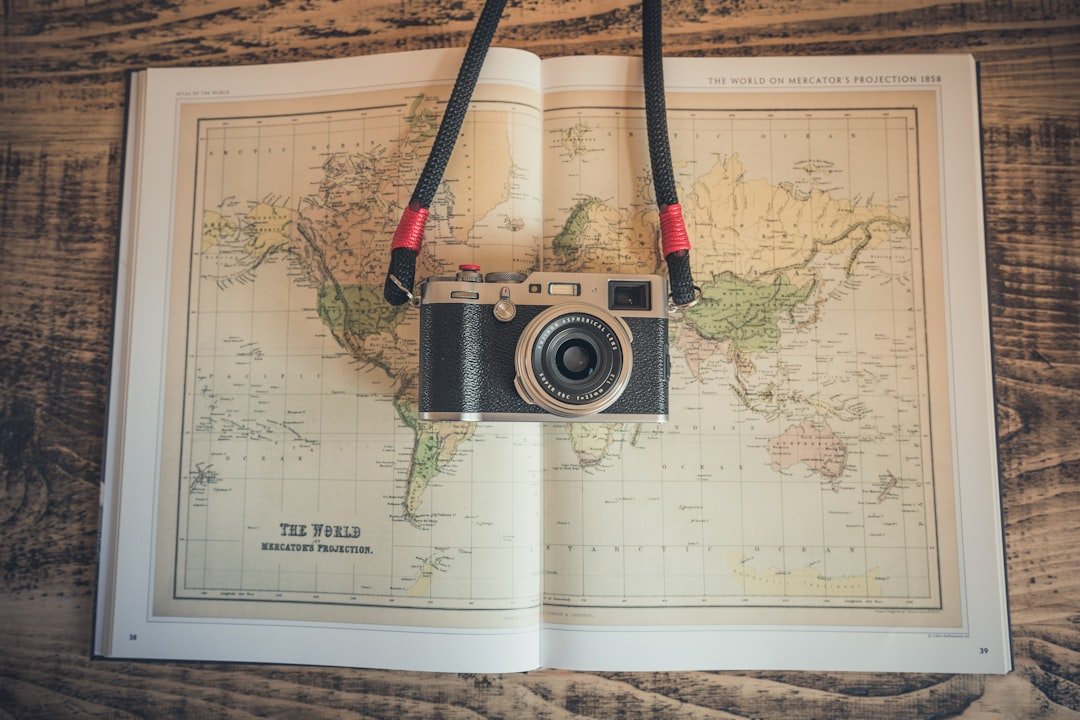Dreaming of your next adventure shouldn't feel like a second job.

For a long time, the idea of planning a trip felt overwhelming. I loved the thought of traveling, but the actual logistics? Finding flights, booking hotels, mapping out activities… it used to trigger that old habit of procrastination in me. Just like I used to put off starting a workout or planning healthy meals, I’d push travel planning to the last minute, making everything more stressful than it needed to be.
But over the years, as I learned to build a productive routine and break down big goals into manageable steps – whether it was losing over 110 pounds or simply organizing my day – I realized the same principles apply to travel. Now, efficient planning isn’t just about saving time or money. It’s about building anticipation and ensuring your trip starts with excitement, not anxiety.
I’ve discovered that with a few simple strategies, you can transform travel planning from a daunting task into an enjoyable part of the journey. Here are 15 hacks that have made a world of difference for me, helping me plan incredible trips without feeling swamped.
15 Hacks for Efficient Travel Planning
- Start Planning Early. This is perhaps the most impactful tip. Giving yourself ample time – ideally several months for international trips – allows you to snag better deals on flights and accommodations. It also gives you space to research without feeling rushed, preventing impulsive and costly decisions. My past self, prone to last-minute scrambles, would have loved this advice!
- Set a Realistic Budget First. Before you even look at destinations, decide how much you can comfortably spend. This isn't just about total cost; break it down by flights, accommodation, food, activities, and a buffer for unexpected expenses. Your budget will guide every decision, from where you go to what you do.
- Choose Your Destination Wisely. Think about what you want from this trip. Do you crave relaxation, adventure, culture, or something else? Research destinations that align with your interests and budget. Don't just go where everyone else is going; find what truly excites you.
- Create a Master Planning Document. I cannot stress this enough. Use a simple Google Doc or spreadsheet to keep track of everything: flight details, hotel reservations, activity bookings, important confirmation numbers, addresses, and contacts. This central hub saves endless searching later.
- Break Down Planning into Small Bursts. This hack truly changed the game for me. Instead of trying to plan an entire trip in one sitting, I dedicate short, focused bursts of time – often 30-60 minutes – to specific tasks. One day I'll research flights. The next, I'll compare hotels. This mirrors the "deep work" approach I use in my daily routine, making progress feel achievable and preventing burnout.
- Be Flexible with Your Travel Dates. If your schedule allows, playing with your travel dates by a day or two can sometimes lead to significant savings on flights and hotels. Mid-week flights are often cheaper than weekend ones. Use flexible date search tools on flight comparison sites.
- Book Flights Strategically. For international trips, aim to book flights 2-8 months in advance. For domestic, 1-3 months. Always clear your browser cookies or use incognito mode when searching for flights, as prices can sometimes appear to increase based on your search history.
- Find Accommodation That Fits Your Style. Think beyond just hotels. Consider guesthouses, apartments, or even a unique stay. Read reviews carefully, checking for location, amenities, and cleanliness. Sometimes, a slightly higher price for a better location saves money on transport and time in transit.
- Research Activities and Book Popular Ones Ahead. Especially for high-demand tours, museums, or shows, booking in advance is crucial. This not only guarantees your spot but also helps you plan your daily itinerary more efficiently.
- Build a Flexible Daily Itinerary. While structure is good, over-planning can lead to stress. Create a loose framework for each day with one or two key activities, leaving room for spontaneity, relaxation, or discovering hidden gems. Remember, travel is also about enjoying the moment.
- Create a Detailed Packing List. Before you even open your suitcase, make a list of everything you think you'll need. Then, go through it and cut anything non-essential. This helps avoid overpacking and ensures you don't forget important items. This disciplined approach is similar to how I learned to be intentional with what I put into my body, helping me lose weight and maintain a healthy lifestyle.
- Check Visa and Entry Requirements Early. This is non-negotiable for international travel. Some countries require visas that can take weeks or even months to process. Research your destination's specific requirements well in advance to avoid last-minute panic.
- Inform Your Bank and Credit Card Companies. Before you leave, let your bank know your travel dates and destinations. This prevents them from flagging your transactions as suspicious and freezing your cards, which is a headache you absolutely don't need while abroad.
- Arrange Airport Transfers in Advance. The last thing you want after a long flight is scrambling to find transportation to your accommodation. Pre-booking a taxi, shuttle, or knowing exactly which public transport to take makes your arrival smooth and stress-free.
- Share Your Itinerary with Someone at Home. For safety reasons, always let a trusted friend or family member know your flight details, accommodation information, and a rough outline of your travel plans.
Planning a trip should add to the joy of travel, not detract from it. By embracing these simple hacks, I've transformed my own approach to planning. It's about taking intentional steps, celebrating those small wins – like finally booking that perfect flight or finding an amazing hidden gem – and trusting that a little upfront effort pays off with a much richer experience.
What's one small step you can take today to make your next travel plan less stressful and more exciting?





